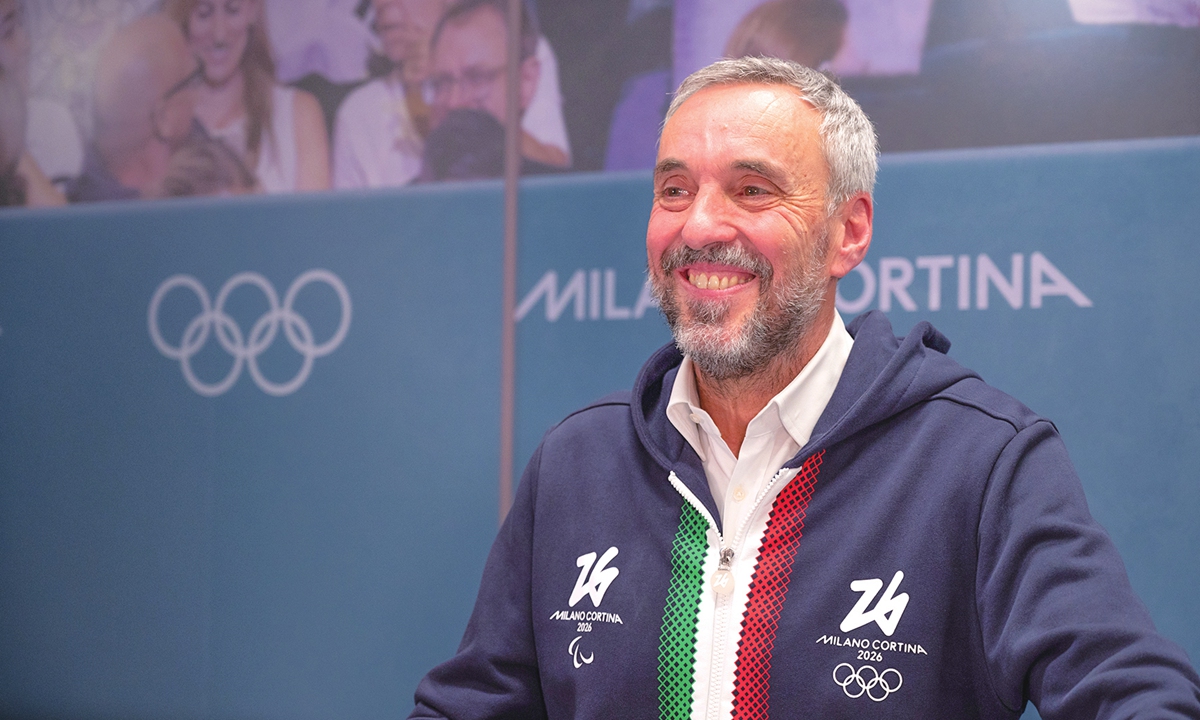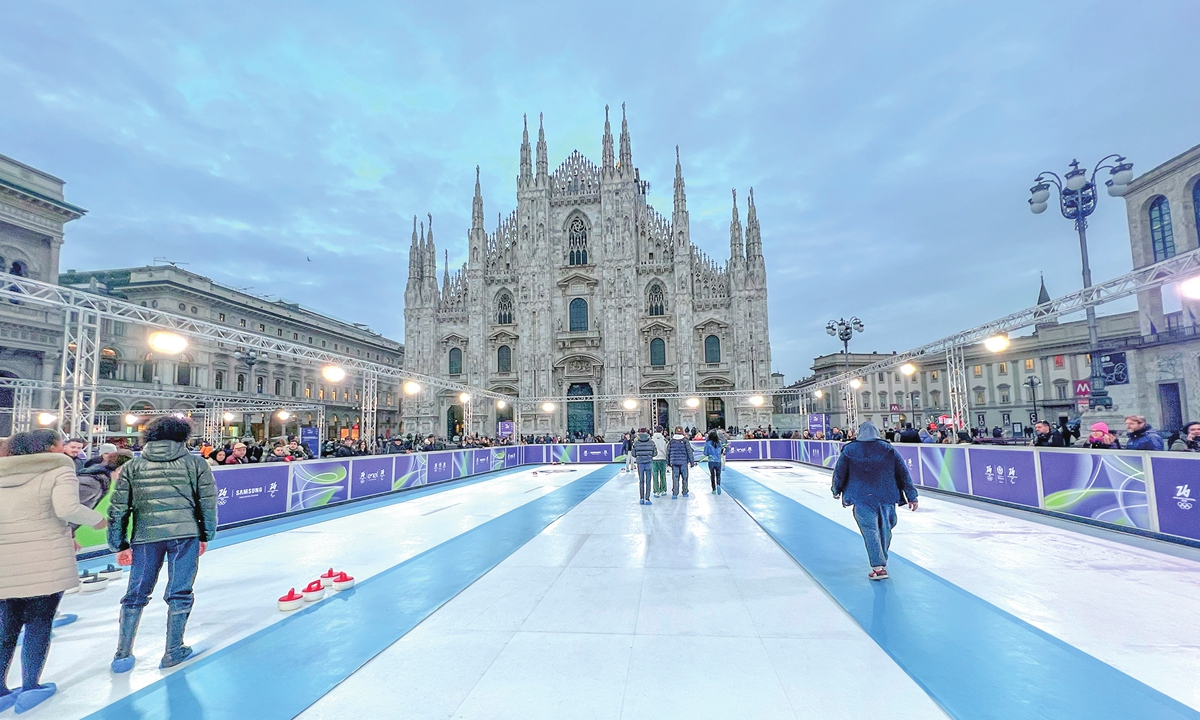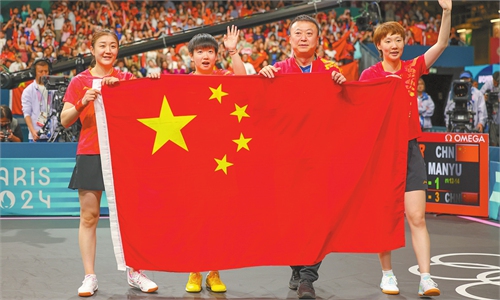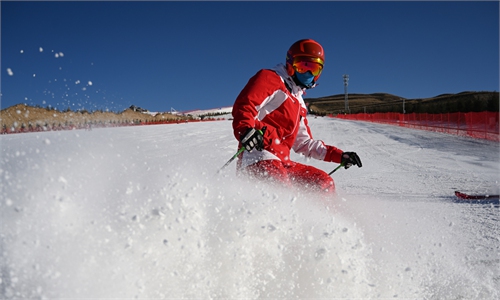SPORT / FEATURE
Milano Cortina 2026 tries to build on Beijing’s Winter Olympic momentum
Relaying an unforgettable legacy

Andrea Varnier, CEO of the Fondazione Milano Cortina 2026 Photo: Courtesy of the Milano Cortina 2026 organizing committee
When Beijing hosted the Winter Olympics in 2022, it not only made history as the first city to host both summer and winter Olympic Games, but also dramatically expanded the global footprint of winter sports.
Now, as Italy makes preparations to stage the 2026 Winter Olympics in the northern regions of Milan and Cortina d'Ampezzo, the ripple effects of China's remarkable winter games are still being felt.
"What China did in the last 20 years is amazing, just barely 20 years ago, a single gold medal in Salt Lake City. Now you're one of the powerhouses both in summer and winter sports," Andrea Varnier, CEO of the Fondazione Milano Cortina 2026 -- the organizing committee for the 2026 Winter Olympics and Paralympics -- told the Global Times in Beijing at the Games' recent promotional event.
Indeed, the Beijing 2022 Winter Olympics made a lasting impression. Despite the challenges posed by the Covid pandemic, Varnier and his colleagues studied the Games closely.
"We were here in Beijing during the [2022] Games," he recalled. "The Games were happening in a very unfortunate time because of the pandemic. We had a very small team with a lot of restrictions, but then we studied your project very much. We learned a lot about the logistics that you use; the way you manage transportation. For us, this is a critical item."
China's ambitious initiative of getting 300 million people involved in winter sports left a particularly strong mark on the Milano Cortina 2026 organizers.
"It's something amazing because we love the sport and we think it's fantastic that you have this vision of a large public that will be close to winter sports," he said.
That vision now finds new expression in Milano Cortina 2026, which is designed to highlight both the timeless beauty of Italy and its modern energy through a sustainable and inclusive model.
One vision
Unprecedented in scope, the 2026 Winter Olympics, to be held from February 6 to 22 in 2026, will cover more than 22,000 square kilometers across northern Italy.
The two main hubs -- Milan, Italy's capital of fashion and finance, and Cortina d'Ampezzo, a storied alpine resort town -- are separated by roughly 400 kilometers and over five hours of driving time. Events will be spread across eight venues in four zones, including Valtellina and the Fiemme Valley.
"The uniqueness of our Games is the fact that, for the first time in history, there's the name of two cities instead of one," Varnier said when asked how the identity of Milano Cortina 2026 compares to past games.
"Most of the investment that has been made for the Games is not for sports infrastructure but roads and railways because we went to places where sports infrastructure existed."
This strategy reflects a core priority of the Games: Sustainability.
"We will do long track speed skating for the first time in the history of the Games on a temporary track -- indoor, but temporary," Varnier said. "It gives the possibility of other cities hosting such an important event without the need to build such a huge piece of infrastructure."
Using what already exists is both a practical and philosophical choice, Varnier said. But still, the geographical spread presents logistical challenges.
"The logistics of the Games are complex because we operate in very delicate territories in the Alps where you can't change the geography," Varnier noted. "They are protected areas. We will use mostly traditional roads. This makes everything more complicated."
Despite the hurdles, the team is making steady progress.
According to the organizing committee, the sliding center -- one of the most technically challenging new facilities -- is on track for final approval by October. Test events and athlete training sessions are expected to begin by the end of this year.

People celebrate the one-year countdown to the 2026 Winter Olympics in front of the Duomo Cathedral in Milan, Italy, on February 7, 2025. Photo: VCG
Contemporary spirit
While Milan and Cortina have each hosted the Winter Olympics before -- Cortina in 1956 and Turino in 2006 -- Varnier emphasized that 2026 event is more than tradition.
"We want to portray the differentiation between the different territories, and they, all put together, represent the contemporary and dynamic Italian spirit," he said. "We have a great history but we want to look into the future, to show a contemporary country with young people interested in sport."
This vision is also reflected in Italy's long-term legacy planning. In addition to improved infrastructure, the Games are investing heavily in youth sports and accessibility.
"We are working very much through our education program, and through our cultural program, to leave a legacy in terms of having young people moving closer to sports," Varnier said. "Sport, we think, is good for health, for the body, and it can also potentially make it a better world."
He also shared a powerful example of inclusive planning.
"We will do the closing ceremony of the Olympics and the opening ceremony of the Paralympics in a Roman amphitheater [that is] 2,000 years old [in Verona]. And for the occasion, it is going to be made accessible, which is something of a feat."
Growing passion
Varnier acknowledges that some Winter sports disciplines already enjoy wide followings. But the Milano Cortina 2026 Games are seen as a chance to elevate less familiar events.
Interest in the 2026 Games is already high. More than 60 percent of available tickets have been sold, and some events are already sold out, Varnier said. About 25 percent of tickets have been purchased by local Italians, with strong demand coming from Germany and the US.
The organizers are especially eager to welcome fans from China, building on the energy seen in 2022.
"There was a fantastic crowd of Chinese [spectators] during the short track [test event]," Varnier recalled of the short track World Tour event in Milan, which acted as a test event for the 2026 Olympics.
"We hope that they will continue following the Games. And I'm sure they do because they were really passionate about the athletes. The fans will have a great experience -- for sport, but also in cultural, food, and hospitality -- that I think Italy can offer," Varnier said.



